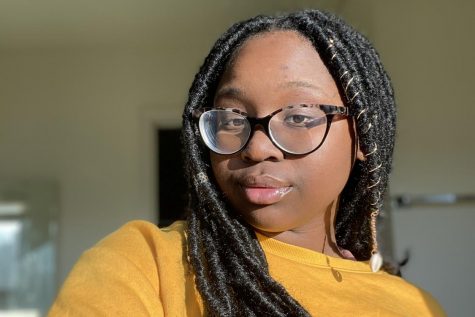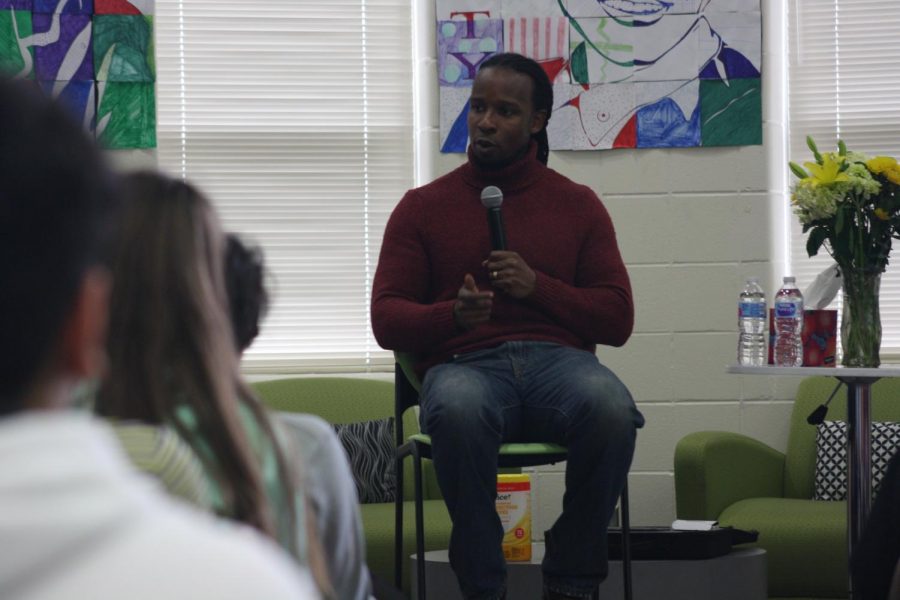Dr. Ibram X. Kendi challenges the ideas of racism and encourages people to become anti-racist.
Dr. Kendi spoke to 204 students about his new book with Jason Reynolds.
Dr. Ibram X. Kendi and Jason Reynolds collaborated on a book titled “Stamped,” which helps teenagers grasp the concept of racism. It was inspiration from Dr. Kendi’s original book, How to be an “Antiracist.” Both novels compare segregationalists as haters, as the likers or the fake friends, and the anti-racist. The lovers in the book focus on the history of racist ideas.
Kendi is an American author, historian, and founding director of the anti-racist research and policy center located in Washington D.C. He often compares racism to this because it is easier for people to comprehend. He pertains to racism like it is a sickness, a disease, or cancer, and it should be treated as though. As a man who has had stage four colon cancer, he doesn’t take the subject likely, so when referring to racism as a sickness, he hopes to make an effort to get rid of it and give awareness.
“I know it’s extremely pervasive, northwards and vast, not all Americans hold some anti-black, racist ideas. I also know almost every sector of society there are racial inequities, with black people on the lower end of those inequities meeting for me the racist policies negatively affecting black people,” Kendi said.
Kendi challenges the fact that schools try to hide history and do not teach racism and history the way it actually is so he takes it into his own hands and he educates students about these topics himself. He tries to do so in the most appropriate way possible. During Kendi’s book talk at Crone Middle School about “Stamped,” a collaborative story with Jason Reynolds, Kendi quickly compared racism to the Knicks and the Bulls and how he wished the Nicks would beat the Bulls every year. If the Knicks beat the Bulls every year, that would indicate that something is wrong with the rules. This relates to today’s society because statistics show black men are nine times more likely to be incarcerated than their white peers.
“I bring this up, because when we think about group inequality, whether that’s any quality between black people and white people, or really any groups in the society, we think of why it is that black people, for instance, are 40% of the incarcerated population in this country. Even though black people make up only about 13% of the national population. There are only two causes, either it’s the case and black people are indeed committing more crimes, are more violent, or more dangerous than other groups, or there’s something wrong,” Kendi said.
Kendi does not want people to not be racist, but instead, he wants them to be anti-racist. He defines anti-racism as fighting for equality and seeing neither inferiority nor superiority by removing or not seeing the basic stereotype that correlates with that specific minority group. Kendi frequently acknowledges the fact that he used to be a racist, but now he is an anti-racist and fights and challenges racist tendencies of people. He wants to give awareness of how to kill off racism and he wants to fight for the equality of all people.
“The lovers, the anti-racists appreciate different people, for being themselves. They say you know what, I’m different you’re different but, we are equal and I loved your differences. And I’d love to see the quality. So I’m not going to try to get you to become like me. I’m going to encourage you to become a better partner and a better version of yourself. The more you become a better version of yourself. The more you’re going to love yourself,” Kendi said.

Jada Jones is a senior and this is her second year joining The Stampede. She is the team's Diversity Editor. She enjoys reading and writing poetry. Her...


